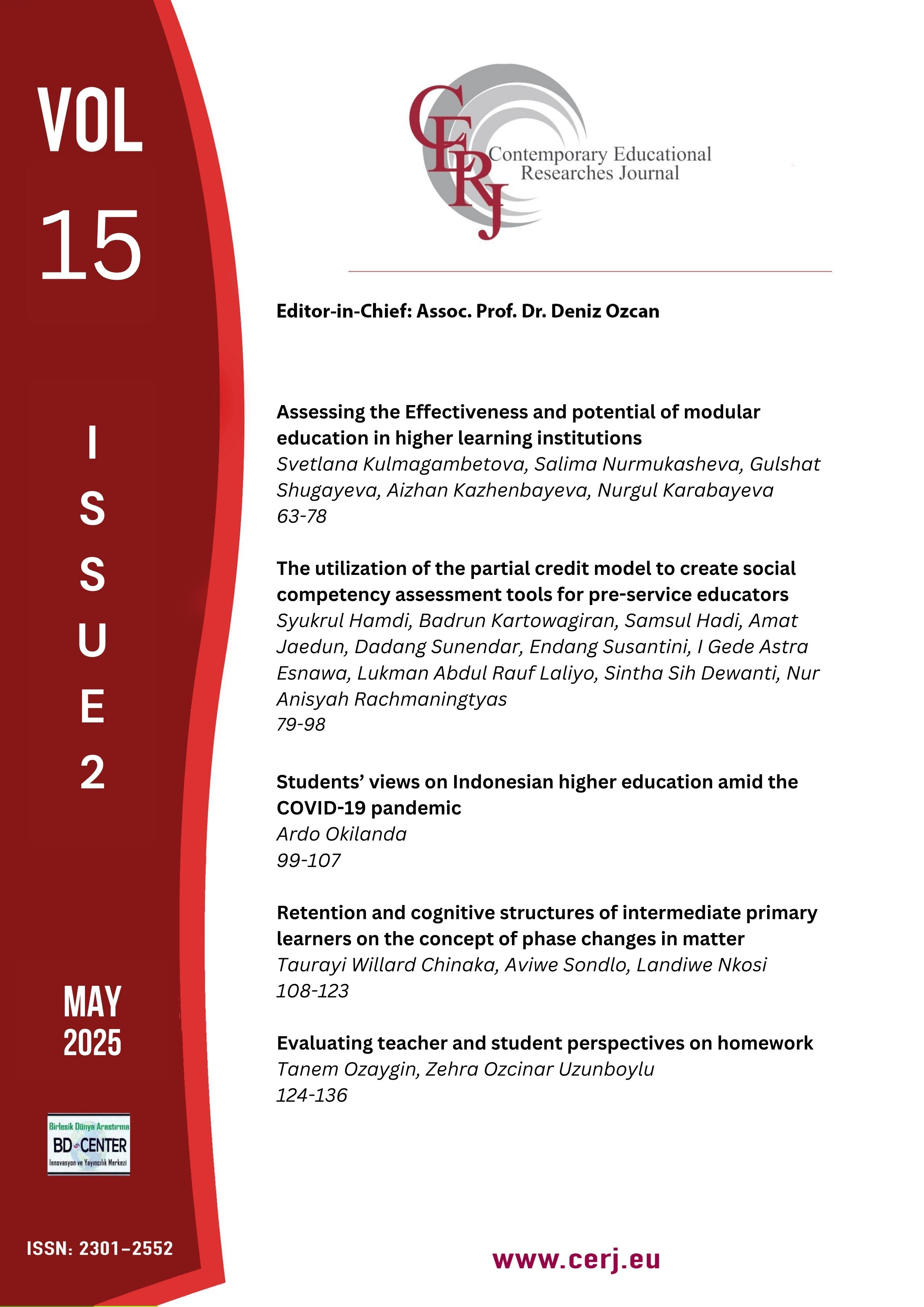Assessing the effectiveness and potential of modular education in higher learning institutions
Main Article Content
Abstract
The global health crisis in early 2020 disrupted conventional teaching methods, prompting a rapid shift toward alternative instructional models. This study investigates the effectiveness of the modular learning approach introduced during the pandemic and seeks to identify an optimal methodological framework for its implementation in higher education. The research employed theoretical and comparative analysis, observation, survey methods, and didactic design to explore how modular learning influenced student training quality. Findings indicate that the modular approach contributed positively to the organization and delivery of academic content, supporting student engagement and learning continuity during a period of crisis. Furthermore, the study highlights critical elements for structuring this methodology effectively, emphasizing the importance of flexibility, autonomy, and coherence in learning design. These insights offer practical value for university educators and education planners aiming to refine instructional strategies in both emergency and long-term contexts.
Keywords: Active learning; higher education; instructional design; modular teaching; pandemic pedagogy
Downloads
Article Details

This work is licensed under a Creative Commons Attribution-NonCommercial-NoDerivatives 4.0 International License.
Authors who publish with this journal agree to the following terms:
- Authors retain copyright and grant the journal right of first publication with the work simultaneously licensed under a Creative Commons Attribution License that allows others to share the work with an acknowledgement of the work's authorship and initial publication in this journal.
- Authors are able to enter into separate, additional contractual arrangements for the non-exclusive distribution of the journal's published version of the work (e.g., post it to an institutional repository or publish it in a book), with an acknowledgement of its initial publication in this journal.
- Authors are permitted and encouraged to post their work online (e.g., in institutional repositories or on their website) prior to and during the submission process, as it can lead to productive exchanges, as well as earlier and greater citation of published work (See The Effect of Open Access).
